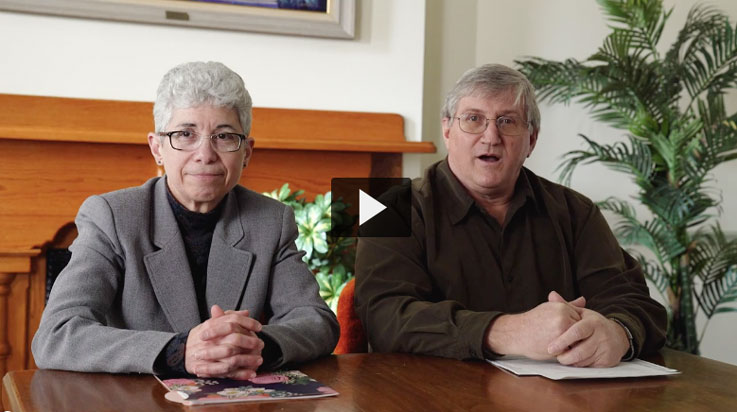
As part of IUP's new reality—the changing and challenging conditions we face as a university—members of the community have agreed to share their perspectives on how we move forward and the initiatives that are underway.
In the third installment of the New Reality series, Karen Rose Cercone and John Lewis, who chair the Inspire initiative—the examination of programs to ensure that the best possible academic experiences are in place for students while ensuring IUP's sustainability—have provided an update. Read excerpts from the interview with Cercone and Lewis below or watch it in its entirety. Note, you will be required to log in using your IUP username and password.
Where Inspire Stands
A three-phase initiative to ensure institutional success through program innovation, redesign, and evolution, Inspire's first phase, which is now complete, focused on programs of greatest concern in terms of enrollment and quality. Phase II is in progress this spring. “Those are programs that we feel are healthier but still might need some changes to attract more students or better suit the marketplace,” Cercone said. The balance of IUP's programs will be reviewed this coming all in Phase III, and group's plan is to search for programs to streamline, strengthen and make more attractive to prospective students.
Nuts and Bolts that Lead to Big Ideas
Back in October 2019, an ad hoc committee composed mostly of faculty members identified the programs that needed the most attention—those programs comprise Phase I. Corresponding deans and faculty members were invited to review, comment, and provide ideas and more information. Then, an Inspire subcommittee conducted additional review. Of the Phase I programs, nine have been identified to be temporarily “cocooned” for further consideration and action. Twelve have been identified for moratorium. The departments that host 11 of the 12 recommended moratorium status. Lewis said, “The good thing about that is when you bring all those faculty members from different colleges together, you start to get big ideas” for blending programs, creating certificate programs, and more to better serve students. “We had six colleges talking together about making programs better.” Now, the academic community is working together to submit ideas that will make IUP's curriculum stronger.
Impact on Faculty
At the same time the committee looked at student progress, its members also considered impact on faculty members. “We aren't taking away any specialty from any program,” Lewis said. “As Karen Rose noted, the courses are still there, but they've been streamlined….It seems like a win-win for everyone.” At this point in the process, there is no anticipation of reducing the current faculty workforce.
Your Opportunity to Advance Your Ideas
The Inspire group invites new and innovative ideas for what they are calling the Big Ideas process. Ideas should cross boundaries and be creative. “We are reviewing the first batch of them now, but we are going to do another round of Big Ideas review in September,” Cercone said. “You don't have to worry about having all the details of your idea worked out…. As we review them, we'll consider the ones we feel are the most feasible for IUP, and we'll build in a lot of the background information for you. If you have an idea to create a bridge between silos, please share it.” Visit the Inspire page (scroll to the bottom) to find the Big Ideas form, which is anonymous.
Next Steps
This has been a faculty-driven process. The faculty will continue to have its usual voice on program changes. All curriculum changes, for example, will still go through the university-wide curriculum committees and the University Senate for approval.
Every Program Will Become a Better Version of Itself
“This is what strong, healthy universities do. They don't sit still. They look at the environment around them. They look at what their students need and what the faculty can provide, and they try to make the best fit of that,” Cercone said. “The process should work to ensure that every program will become a better version of itself.”